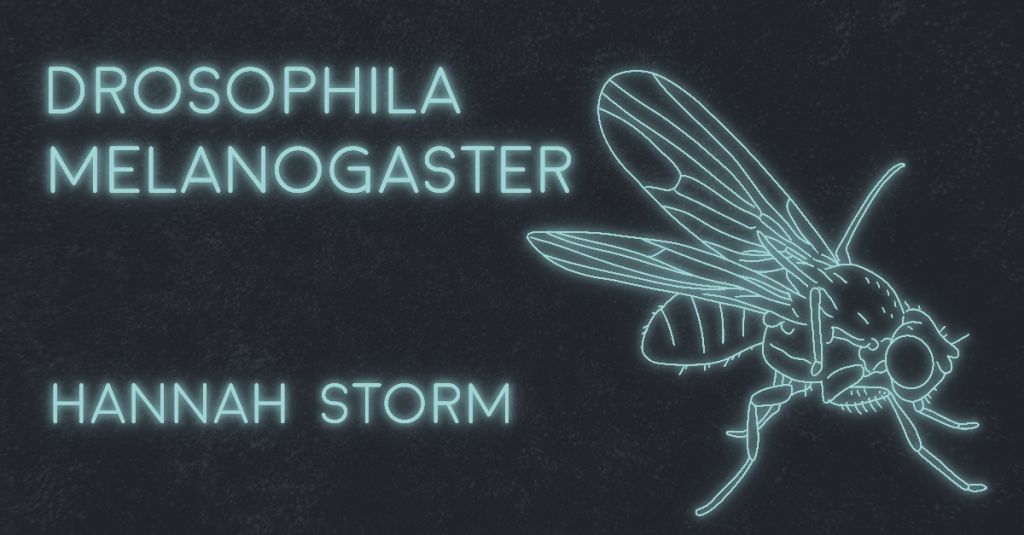The fruit fly shares the same genes as a human. Its Latin name is “Drosophila Melanogaster,” which sounds awfully fancy for something attracted to rotten fruit and vegetable. I think about the time you told me I smelt ripe when you forced me onto my back in that room with the torn sheets. Fruit flies breed in drains, empty bottles and waste disposals, relying on a moist layer of material that ferments to grow their families. The adults have brown trunks, black bottoms and crimson eyes and are so small they can creep through windows and doors that aren’t properly covered. I think about the time we met, how I was bruised and broken, how you flew to my side, hovered around me, your tanned arms winged in a false promise. The reproductive potential of a fruit fly is enormous, and given the chance they can lay five hundred eggs. Your first girlfriend had an abortion, you left your second after you boasted how easy it would be for you to get her pregnant. You tell me this as you lie, limp and damp, and I see your eyes turn red with tears. Soon you’re snoring. You don’t hear me creep away to mop up the smell of me, or move to the window above the bins, where I watch their bags spilling into the car park. Your snores sound like the buzz of five hundred flies surfacing from the fetid food when I leave you in your waste.
Hannah Storm Hannah Storm has spent the past two decades travelling the world as a journalist, visiting extraordinary places and meeting people who have inspired her flash fiction and creative non-fiction. She now lives in northern England with her family, from where she works as a media consultant and mental health advocate, writing and running to process her own past and developing fresh perspectives. Her debut collection 'The Thin Line Between Everything and Nothing' is published later this year by Reflex Fiction.
Art by Bob Schofield @anothertower

